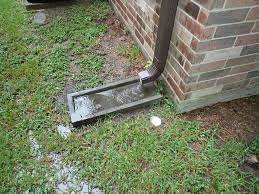 Why should you have a Double C Home Inspection completed on a new construction home? Newly built homes are great. They have the new home smell and look amazing. So, why get a home inspection, right? Skipping out on a home inspection is like not looking at your car because it just got to the lot. How many recalls are heard about with new vehicles? Buying a home and getting it inspected is in the same category… except a home can be a lot more costly to fix. Who wants to move into a home that must be fixed because things weren’t done right? Who has the time to complete things that should have been installed correctly? Home inspections can provide you with peace of mind! From touring the home for the first time, to when the builder says they are done, we know that this is the best feeling in the world. You may be thinking, “the wait is over” it is finally time!! Everyone may be arguing over who gets what room and where they are going to put their things. But, did anyone notice that when the doors are closed, they don’t fully close? Or did anyone notice that when someone uses the sinks, there's a leak in the cabinet below? Many of the small things that are missed due to excitement and relief when it's finally time to move in, might first be caught by Double C Home Inspections. We take pride in inspecting for these issues, and we provide you with a report that will bring them to your attention before you move in. One thing that is usually forgotten and super easy to fix is missing splash blocks at the bottom of rain gutter downspouts. This item is inexpensive and easy to install, but if not present can potentially cause big problems with a structure's foundation. In the end don’t let the small things a Double C Home Inspection could have found, cost you big bucks! We take great pride in providing each service we perform! If you'd like to learn more, check back again here often! Adrian Lopez TREC #24214 Okay, here's the scenario:
You have found the home you love, and you have the home inspected. Several issues are found on the inspection report that you want the home seller to repair, so you make the moves needed to request that this happen properly based on the inspector's findings. The seller replies back some time later that these repairs have been made as requested. Your closing date is coming up soon, and you want to make sure that those repairs were completed correctly. So, what do you do? On average, we complete about 1-2 re-inspections per month, so less than 5% of our business overall. I have to be honest; I dread completing a re-inspection! DREAD IT! Why? Because of the 100 or so I have done as an inspector, I have had only ONE where every repair the seller claimed to have completed correctly was actually completed correctly. Why are so many not completed correctly? I don't know..... So now, we have a prime example of lack of return on investment for the client. Our inspection company does charge for every re-inspection we complete because it is time on our schedule where we could be earning a full fee inspecting a home elsewhere. Honestly, I believe that any experienced, self respecting inspection company should charge for this service. To sum up the above scenario; the client (buyer) has now paid us 2 separate fees, and repairs still aren't right. Instead of the above scenario, we recommend this: have the seller provide documentation from the contractor they hired to complete the job showing how the item was corrected, by whom, & when. If a licensed or qualified pro was hired to complete the job, then we should assume they know what they're doing and they are capable of doing the job correctly. In the event that the contractor didn't do the job correctly, the client will know who to contact next. This solution is much more advantageous to the client, and provides the needed documentation for peace of mind. Pool Time Preparations Pools are always a fun time to spend with family, but unfortunately as a Home Inspector in west texas, the maintenance and safety of the swimming pool is sometimes disregarded. As a full service inspection company, we want to help! Read on to see some helpful tips that will help keep your pool safe, as well as looking and working well throughout the year! Make sure that the pool is properly secured from unwanted guests (and liabilities!!) Having the gates open away from the pool and having the locking mechanism at the correct height at all of the entrances is a good way to make sure the perimeter of the pool is secured. This is relatively simple to correct, and not very expensive! Perception is Reality to any potential buyer. Making sure that the minor details such as cracks in the decking and coping of the pool and pool accessories are not overlooked will keep the maintenance to a minimum. Here in Midland Tx pools are a commodity and are more common than expected. The water from the surrounding area is heavy in hard minerals and can affect the pools filtering system. Having the correct chemicals in the pool with affect the clarity and cleanliness of the pool. Water can be the life of the party or the demise of the surrounding areas of the pool. Water will get in the cracks in the decking and copping and cause spalling or in the winter can be affected by the freeze/thaw cycle. Sealing the cracks in pool decking will help prevent future damage and repairing or painting any areas that have begun to rust will increase the longevity of the areas. There are no second chances at first impressions. Make a list for monthly check-ups so you can stay on top of the overall maintenance of the pool. This will make sure everything is up to par and can potentially keep the out of pocket expenses down with the preventative measures taken. West Texas is known for being hot and dry, having a properly working safe pool is the best thing to have for these temperatures. Questions or concerns about your swimming pool? We can help! Contact us today!
So many of the defects I find as a home inspector are related to lack of maintenance. Below you'll find some simple tips to help your home last longer, look nicer, and function more efficiently! 1. Don't neglect painting or otherwise maintaining the exterior of the home - especially trim! It's easy to focus on the interior of the home for paint, decor, etc, but don't forget the exterior too. Paint goes a long way towards preventing wood rot and other associated problems. Make the most of your curb appeal with this simple and affordable task! 2. Maintain your homes' systems as intended. *Air filters at your HVAC system should be changed as often as recommended by the manufacturer, or more often if needed. This helps the system function more efficiently, and can also help with allergens in the air. *Water heaters should be drained regularly. This will usually help extend the life of your water heater if you start off doing this from day one.(You can find step by step guidance for completing this task on this website.) *Chimneys should be cleaned regularly to prevent possible creosote build up and potential chimney fires. *Test your smoke and carbon monoxide detectors regularly per manufacturer's instructions. Replace batteries as directed, and remember to have smoke detectors in every sleeping area, hallway, and on every floor of the home at a minimum! Life saving advice! 3. Look for ways to make your home more energy efficient. In addition to the items mentioned above: Consider replacing burned out light bulbs with energy efficient LED bulbs. Have your HVAC system professionally cleaned and serviced at least annually - this will help the system function more effectively and hopefully last longer too. Check the temp on your hot water supply - you can complete this task with a stem thermometer or other means. If the water temp is too high (over 130*) it can lead to potential burns to vulnerable individuals, but dialing back the thermostat on your water heater can also help save energy. You can find instructions for completing this process on our website! Adding insulation to your attic is almost always an effective means of improving energy efficiency. This is a service offered by many HVAC contractors, but is possible to DIY too. Caulk and properly seal around doors and windows. This becomes even more important in the winter months to stop those cold drafts! We have many more helpful tips on our blog from the past 6+ years of service! Keep reading and check back here again soon! Cale Cameron GET ACCURATE REPAIR ESTIMATES FROM ANY INSPECTION REPORT IN 24 HRS OR LESS! Solutions for Real Estate Agents SAVE TIME & NEGOTIATE SMARTER Close more deals and streamline your negotiation process for the final cost for home repair using the preferred tool for top agents. NEGOTIATE LIKE A PRO Solutions for Home Buyers Get access to the preferred tool that Top Agents use to negotiate home repair pricing after a home inspection. We can provide you with the repair pricer report after your inspection, typically 24 hours after the inspection report is processed. If you'd like to add this option to a home inspection, let us know when ordering the property inspection! We are happy to help! We often serve clients that are not sure how the inspection process works. We want to make sure we give our client the service they need and provide realistic expectations for every home and home buyer. Below, you'll find the steps involved in a Double C Home Inspection:
1. Book the inspection - the more info provided to us, the better! You can request an inspection here and $AVE $25: https://www.doublecinspection.com/request-your-inspection-247.html 2. We will send a confirmation email to you (and your agent if applicable). 3. Now, the seller or their rep should be notified of the scheduled inspection date and time. This is important! 4. Inspection date and time has arrived! INFO INCOMING!! The inspection itself usually takes 2-3 hours, and is very thorough. We look forward to seeing you there! The inspector will save discussion and commentary on what he's found til the end of the inspection; much like texting while driving, "walk and talks" are not real home inspections and are very distracting, and we strive to avoid them! 5. Once the inspection is completed, the report will be emailed to you (and your agent if applicable) the same day. THAT'S FAST! 6. Questions? Comments? We're always a click, text or call away! [email protected] (432) 202 - 7544 Unfortunately, I am seeing more and more inspection companies that provide inspection reports that don't give any real value to the client or the agent.
What do I mean? Have you seen an inspection report with useless junk like this included? "TREC Limitations: The Inspector is not required to determine the remaining life expectancy of the roof covering or the number of layers of roof covering material or to identify latent hail damage or to exhaustively examine all fasteners adhesion or to provide an exhaustive list of location of deficiencies and water penetrations, ." or this? "Buyers Advisory Notice: Attic ventilation is important. In cold weather, the hot moist air will condense on the roof members. In hot weather, the radiant heat will make the house uncomfortable. (The minimum specifications are 1 sq. Ft. Net free ventilating area for every 150 sq ft of attic floor space)." I could go on and on and on..... Does this info help you or your client identify defects that may be a concern? How do you tell what's a defect and what is the inspector doing some CYA (cover your a**)? As a professional inspector with thousands of inspections completed, inspection reports with nonsense like the info above included are an embarrassment to the profession. To me, they are an example of an inspection company or inspector that is not confident in the job they are doing, or an inspection company or inspector that doesn't understand what the client or agent needs from the inspection report. How do you avoid hiring someone that provides poor quality reports? You need to know the inspector you are referring. You need to know that they have the experience and know how to provide you with a complete report that is USEFUL! Contact us today! We provide REAL information to REAL clients and REAL agents! I know, I know....we all look at the cost. But what's the final cost?As Americans, we are trained to look at price first.
Cheapest gasoline? Cheapest milk? Cheapest vehicle? Cheapest home? What do each of these have in common? They are products. Things. Now, think about this: Cheapest doctor? Cheapest attorney? What do each of these have in common? Each are licensed professionals. They are not products or things. Would you expect equivalent service from the cheapest attorney or doctor and the best attorney or doctor? Of course not! The cheapest attorney or doctor might be inexperienced, or may not provide the same attention to detail that the best attorney or doctor provided. Remember, you get what you pay for. There are dozens of cheap inspectors in our area. Some might do a good job. Most are probably inexperienced, or even part time inspectors, working a full time job elsewhere because their business has never really taken off. Other inspectors market only on price. Why? Probably because they have nothing else to offer that makes them any better than any other inspector out there. I don't understand why anyone would look for the cheapest inspector when needing a professional opinion on the biggest investment they will ever make! It is completely illogical, much like choosing the cheapest doctor when your life is on the line, or the cheapest attorney when everything else is at stake! Once again, the message should be clear: You get what you pay for! Concerned about your foundation?Did you know it is estimated by an experienced Texas Professional Engineer that nearly ALL of the foundation repairs performed in Texas were never necessary? Talk to a homeowner in Houston, San Antonio, or Dallas, and they either know someone who has had "repairs" completed on their foundation or they have themselves. In West Texas, this is just beginning to become a bigger business, kind of like sewer drain line replacements were a few years ago and still are today. Foundation repair companies are cropping up here and there, looking to get their hands on big money, & in the process discouraging home owners and scaring off home buyers!
So what's a realtor, home buyer, or home owner to do? Call a professional. Double C Home Inspections is now offering Engineering Level Foundation Evaluations with all of our other services! This means you can provide your seller or buyer (or both) with the peace of mind that comes with an experienced, licensed professional to provide a complete, thorough evaluation of the foundation elevations at the home in question. There are numerous ways this could help with the home transaction process: New Construction Home: this is ideal for a "Benchmark Evaluation", establishing where the foundation is today. This will tell everyone else in the future where the foundation was on this date. No ifs, ands, or butts! Existing home: This is where we can really help! Have the foundation evaluated and know before it ever gets to the point of calling in the repair guy! Did you know? Most foundation repair contractors are not licensed, not certified, sometimes not even well trained? BEWARE! Have you ever contacted a repair company for an evaluation before? Did they say, " There are cracks all over the brick on the outside of the home, this foundation needs repairing!" Actually - (Per The Structural Committee of The Foundation Performance Association) - This is most often caused by thermal expansion behind the brick (Not a foundation problem!) Did they say, "The floor is definitely out of level, needs repairing!" Actually - the foundation was most likely installed out of level (Not a foundation problem!) Did they say, "Doors are not closing correctly or are swinging open/closed on their own. Foundation needs repairing! Actually - The doors or door frame are most likely installed incorrectly (Not a foundation problem!) Did they say, "These cracked floor tiles are a problem. Foundation needs repairing! Actually - Floor tile cracks are almost never related to foundation defects. They are floor defects (Not a foundation problem!) These are a small sample of the real answers provided by structural engineers to problems that don't exist! So, how does a foundation evaluation from Double C Home Inspections work? You can book your inspection @ www.doublecinspection.com and select foundation evaluation along with any other optional service you might need, (like a termite inspection, etc.) You can call, text, or email us and let us know you want this service added to the inspection Once the inspection is completed and report is ready, you'll receive the foundation evaluation survey report with any other reports you've requested. Simple! We're excited to offer this new, and in high demand service to West Texas! Below you'll find a helpful tool I've created based on my experience inspecting homes in West Texas over the past 6 years. Whether your home is in Littlefield, Lubbock or Lamesa; Midland, Odessa, Monahans, or Muleshoe: This graph rings true based on the age of the homes I have inspected; 3000+ homes and counting! Please keep in mind that this information can vary. Feel free to download the graph, print, and share with others!
How common is mold in buildings?Molds are very common in buildings and homes. Mold will grow in places with a lot of moisture, such as around leaks in roofs, windows, or pipes, or where there has been flooding. Mold grows well on paper products, cardboard, ceiling tiles, and wood products. Mold can also grow in dust, paints, wallpaper, insulation, drywall, carpet, fabric, and upholstery.
The most common indoor molds are Cladosporium, Penicillium, and Aspergillus. We do not have precise information about how often different molds are found in buildings and homes. How do molds get in the indoor environment and how do they grow?Mold is found both indoors and outdoors. Mold can enter your home through open doorways, windows, vents, and heating and air conditioning systems. Mold in the air outside can also attach itself to clothing, shoes, and pets can and be carried indoors. When mold spores drop on places where there is excessive moisture, such as where leakage may have occurred in roofs, pipes, walls, plant pots, or where there has been flooding, they will grow. Many building materials provide suitable nutrients that encourage mold to grow. Wet cellulose materials, including paper and paper products, cardboard, ceiling tiles, wood, and wood products, are particularly conducive for the growth of some molds. Other materials such as dust, paints, wallpaper, insulation materials, drywall, carpet, fabric, and upholstery, commonly support mold growth. How do you know if you have a mold problem?Large mold infestations can usually be seen or smelled. How do molds affect people?Exposure to damp and moldy environments may cause a variety of health effects, or none at all. Some people are sensitive to molds. For these people, exposure to molds can lead to symptoms such as stuffy nose, wheezing, and red or itchy eyes, or skin. Some people, such as those with allergies to molds or with asthma, may have more intense reactions. Severe reactions may occur among workers exposed to large amounts of molds in occupational settings, such as farmers working around moldy hay. Severe reactions may include fever and shortness of breath. In 2004 the Institute of Medicine (IOM) found there was sufficient evidence to link indoor exposure to mold with upper respiratory tract symptoms, cough, and wheeze in otherwise healthy people; with asthma symptoms in people with asthma; and with hypersensitivity pneumonitis in individuals susceptible to that immune-mediated condition. In 2009, the World Health Organization issued additional guidance, the WHO Guidelines for Indoor Air Quality: Dampness and Mould pdf icon[PDF – 2.65 MB]external icon. Other recent studies have suggested a potential link of early mold exposure to development of asthma in some children, particularly among children who may be genetically susceptible to asthma development, and that selected interventions that improve housing conditions can reduce morbidity from asthma and respiratory allergies. A link between other adverse health effects, such as acute idiopathic pulmonary hemorrhage among infants, memory loss, or lethargy, and molds, including the mold Stachybotrys chartarum has not been proven. Further studies are needed to find out what causes acute idiopathic hemorrhage and other adverse health effects. There is no blood test for mold. Some physicians can do allergy testing for possible allergies to mold, but no clinically proven tests can pinpoint when or where a particular mold exposure took place. Who is most at risk for health problems associated with exposure to mold?People with allergies may be more sensitive to molds. People with immune suppression or underlying lung disease are more susceptible to fungal infections. Individuals with chronic respiratory disease (e.g., chronic obstructive pulmonary disorder, asthma) may experience difficulty breathing. Individuals with immune suppression are at increased risk for infection from molds. If you or your family members have these conditions, a qualified medical clinician should be consulted for diagnosis and treatment. How do you keep mold out of buildings and homes?Inspect buildings for evidence of water damage and visible mold as part of routine building maintenance, Correct conditions causing mold growth (e.g., water leaks, condensation, infiltration, or flooding) to prevent mold growth. Inside your home you can control mold growth by:
Remove moldy items from living areas. Once mold starts to grow in carpet, insulation, ceiling tiles, drywall, or wallboard, the only way to deal with the problem is by removal and replacement. It is important to properly clean and dry the area as you can still have an allergic reaction to parts of the dead mold and mold contamination may recur if there is still a source of moisture. Remove or replace carpets and upholstery that have been soaked and cannot be dried promptly. Clean up and dry out your home thoroughly and quickly (within 24-48 hours) after any flooding. Dig out mud and dirt . Use a wet vacuum to remove remaining dirt. Scrub cleanable surfaces (such as wood, tile, stone) with soapy water and a bristle brush. Thoroughly clean all hard surfaces (such as flooring, molding, wood and metal furniture, countertops, and sinks) with water and dish detergent. Dry surfaces quickly and thoroughly after cleaning. If you have a fan, air conditioner or dehumidifier that wasn’t affected by flooding use it to help the surfaces dry after you finish cleaning Mold growth can be removed from hard surfaces with commercial products, soap and water, or a bleach solution of no more than 1 cup (8 ounces) of bleach in 1 gallon of water to kill mold on surfaces. Never mix bleach with ammonia or other household cleaners. If you choose to use bleach to clean up mold:
Are there any circumstances where people should vacate a home or other building because of mold?These decisions have to be made individually. If you believe you are ill because of exposure to mold in a building, you should consult your physician to determine the appropriate action to take. I found mold growing in my home; how do I test the mold?If you can see or smell mold, a health risk may be present. You do not need to know the type of mold growing in your home, and CDC does not recommend or perform routine sampling for molds. No matter what type of mold is present, you should remove it. Since the effect of mold on people can vary greatly, either because of the amount or type of mold, you cannot rely on sampling and culturing to know your health risk. A qualified environmental lab took samples of the mold in my home and gave me the results. Can CDC interpret these results?Standards for judging what is an acceptable, tolerable or normal quantity of mold have not been established. Sampling for mold can be expensive, and standards for judging what is and what is not an acceptable quantity of mold have not been set. The best practice is to remove the mold and work to prevent future growth. If you do decide to pay for environmental sampling for molds, before the work starts, you should ask the consultants who will do the work to establish criteria for interpreting the test results. They should tell you in advance what they will do or what recommendations they will make based on the sampling results. The results of samples taken in your unique situation cannot be interpreted without physical inspection of the contaminated area or without considering the building’s characteristics and the factors that led to the present condition. I heard about “toxic molds” and “black molds” that grow in homes and other buildings. Should I be concerned about a serious health risk to me and my family?There is always a little mold everywhere – in the air and on many surfaces. Certain molds are toxigenic, meaning they can produce toxins (specifically “mycotoxins”). Hazards presented by molds that may produce mycotoxins should be considered the same as other common molds which can grow in your house. Not all fungi produce mycotoxins and even those that do will not do so under all surface or environmental conditions. Mold growth, which often looks like spots, can be many different colors, and can smell musty. Color is not an indication of how dangerous a mold may be. Any mold should be removed and the moisture source that helped it grow should be removed. There are very few reports that toxigenic molds found inside homes can cause unique or rare health conditions such as pulmonary hemorrhage or memory loss. These case reports are rare, and a causal link between the presence of the toxigenic mold and these conditions has not been proven. From CDC.gov - https://www.cdc.gov/mold/faqs.htm I bet we could all share a story or two regarding misinformation we've receieved from the internet, TV, social media, or friends and family!
Remember Y2K? The uncertainty & the panic for some people? Prepping homes, stockpiling groceries and supplies. All of the worry and none of the disaster, as the problems we were told were imminent come January 1st, 2000 amounted to nothing. From the 1980's - killer bees! They're coming to get us! (We're still waiting...) One common myth I hear from time to time relates to all of the possible problems a new homeowner could face buying their first home. The concerns vary; could be asbestos, mold, aluminum wiring, lead paint. This list goes on and on. Many of these concerns are perpetuated by the home improvement shows on TV that in my opinion, make a mountain out of a mole hill in order to drum up drama to improve ratings, etc. The fact is that the odds of actually running into any of these four issues in a West Texas home are very slim. Any mold can be hazardous to your breathing and allergies, but having a home overrun with mold would be unheard of in our dry climate. Asbestos, lead paint, and aluminum wiring are prone to homes from very specific time frames of construction only, and are a rare occurrence. What about energy efficiency? This has become a hot topic in recent years, sold as a "need" by contractors selling windows and doors, among other materials and services. You can research for yourself, but spending the money needed to install new windows will almost never "pay for itself" with energy savings. The insulation value of the very best windows will never save you enough over the cost of getting the windows installed. If you're getting new windows, it might be worth it based on appearance, emergency egress, etc. Improving insulation in your attic can benefit you for a relatively lower cost, but do your research. Return on investment may not add up to what you think it will! What issues should a home owner be concerned about? Take a close look at your inspection report! There you should find valuable information provided by an experienced professional. Use it to your benefit and enjoy your home! Your home inspection is complete. Now what?REVIEW:
Your first step as a home buyer should include completely reviewing the home inspection report. This may sound obvious, but you may be surprised to know that many home buyers don't ever access or review their inspection reports! Per the real estate licensing authority in Texas, the Texas Real Estate Commission, in regards to the inspection report - "It is important that you carefully read ALL of this information." "You" being the client, usually the home buyer. Time is usually short during option periods, etc. Make the most of it! ADDRESS: What item(s) in the inspection report seem important to you to be corrected? What item(s) in the inspection report does your Agent recommend be addressed? Get on the same page early on, and if there is some issue listed on the inspection report or other aspects of the real estate process that you don't understand, check with your inspector for inspection issues, and your Agent for pretty much everything else! KEEP IT: Hang on to your inspection report, and eventually make sure to make repairs to EVERY ITEM listed as a defect on the report . Many defects listed on the average inspection report are what I would consider "Minor", meaning they are just part of life as a homeowner. Plan to fix these over the weeks, months, or years ahead as a homeowner. Some are certainly more time sensitive than others, so prioritize accordingly. Assuming you hired a licensed, experienced pro to inspect the home, their advice and recommendations are invaluable to you as a homeowner. Don't waste all that professional experience and knowledge! We hope this helps you take those crucial next steps towards home ownership! Check back here soon for more helpful tips and other great info! Preparing your home for the inspection is important; Use this checklist to make the process simple and painless!
So who should you trust?
Sometimes, this question is not so easy to answer. Here's the scenario: you have a home inspected, and the home inspector is telling you such and such needs to be repaired, then, you hire a contractor to fix the issue, and the contractor is telling you something very different. Who should you believe? You might think I'm going to say "the inspector", ya know, cause I'm an inspector! Surprise! I'll actually tell you there's a very good chance both the inspector and the contractor are correct. Here's why: the inspector was basing their recommendation on what they could see. As you may or may not know, an inspector does not and should not disassemble components in order to inspect them. A home inspection is by definition (legally!) a visual inspection. The contractor may be basing their recommendation on info gained from a much more invasive process. In other words, the contractor can see what an inspector can't. BEWARE: THE #1 THING that makes a contractor's opinion or recommendation different than an inspector's opinion or recommendation is THIS>>>> A contractor is making their recommendation with the expectation that it will provide them with additional income! In other words, the plumber says you need a new water heater. And of course this is added business for said plumber. A licensed professional home inspector in TEXAS cannot, by LAW, offer to make repairs on your recently inspected home. It's an ethics issue. Tradesman are not held to this standard. This is why you should view all recommendations from professionals through the lense of "What are they hoping to gain from what they're telling me?" As the old adage goes, "Caveat Emptor" or, Buyer Beware! Love receiving a long inspection report that you have to navigate? |
AuthorCale Cameron Archives
May 2024
Categories |
Proudly powered by Weebly

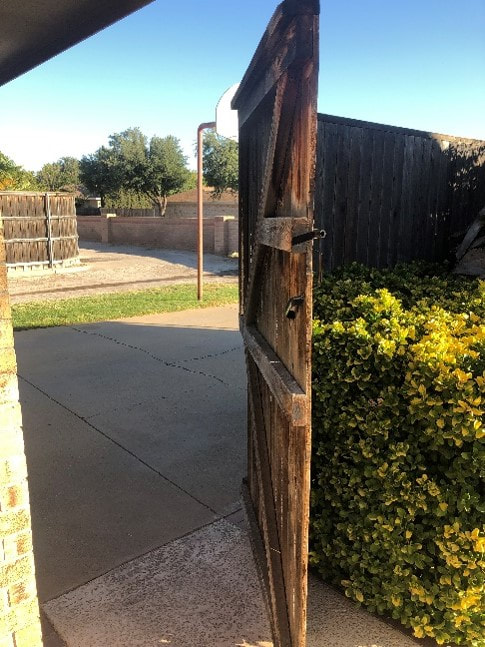
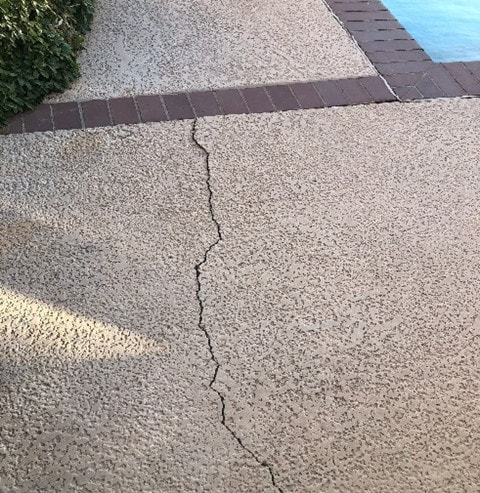
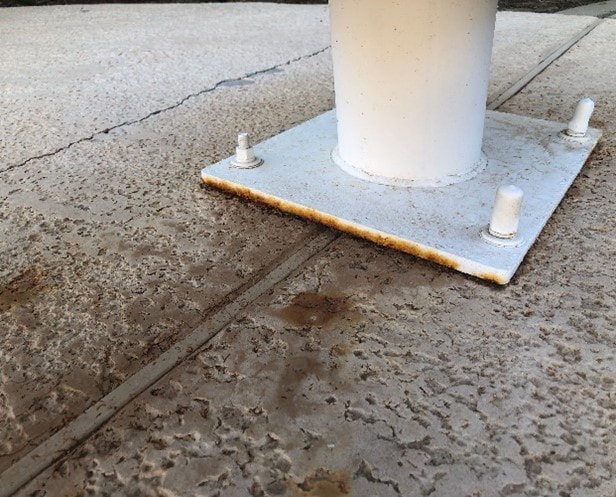
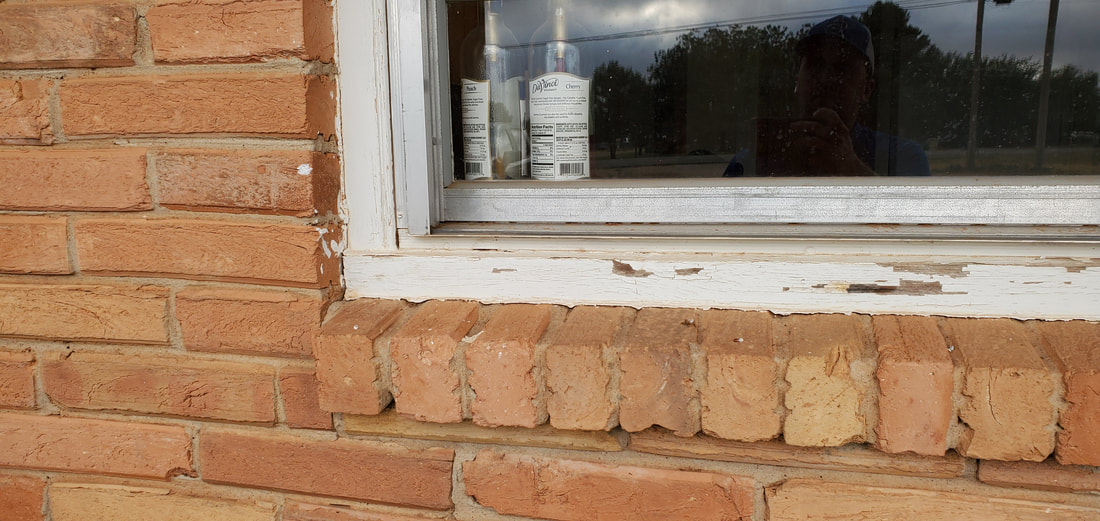

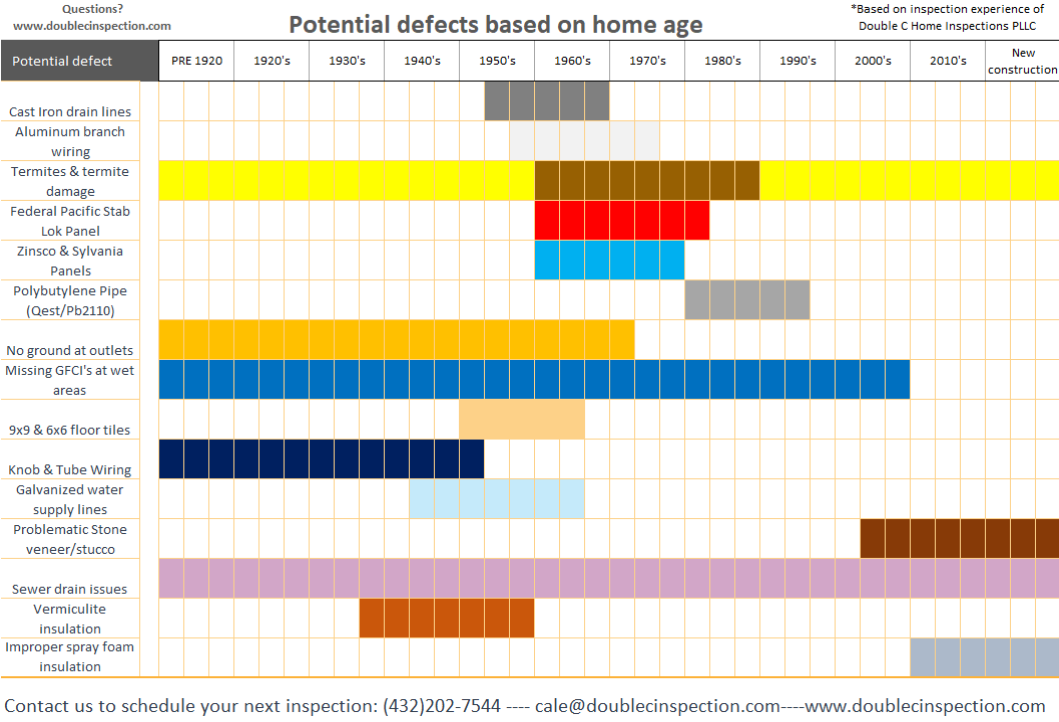




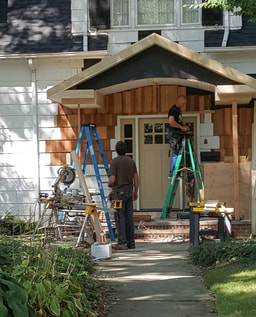
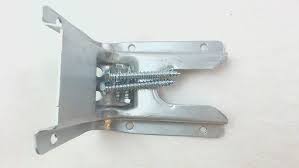
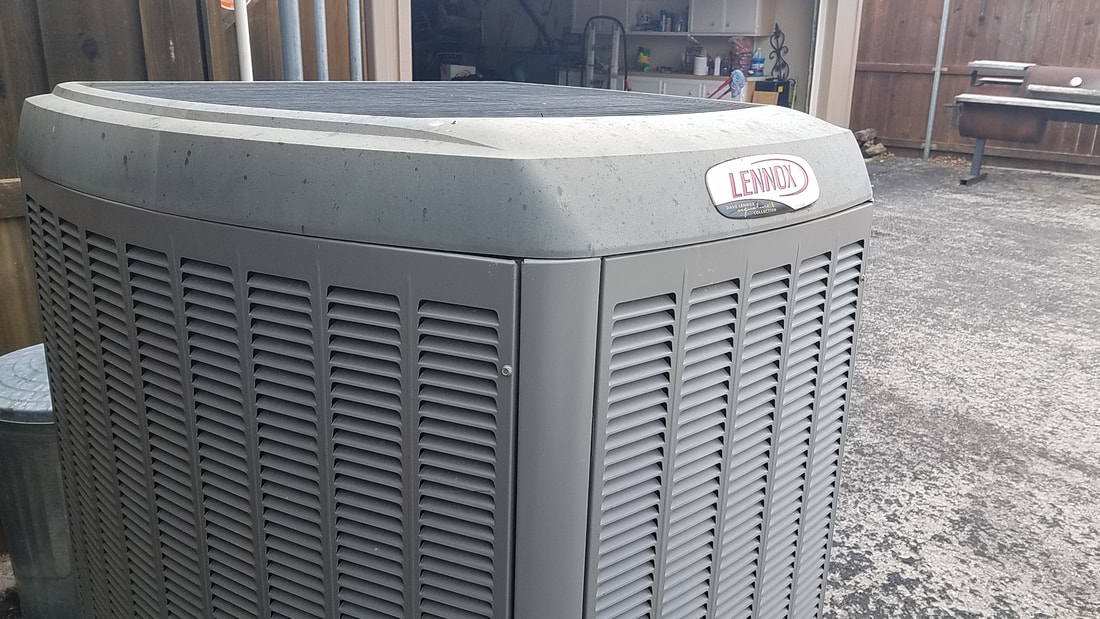
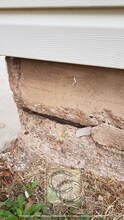
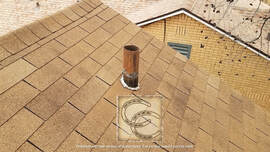
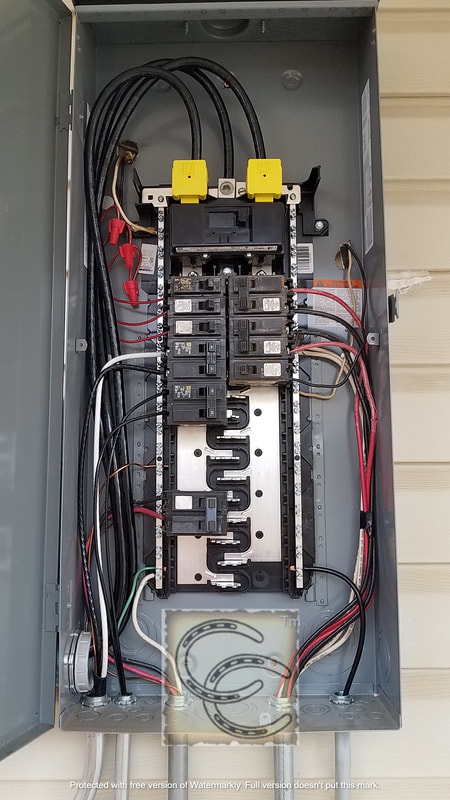
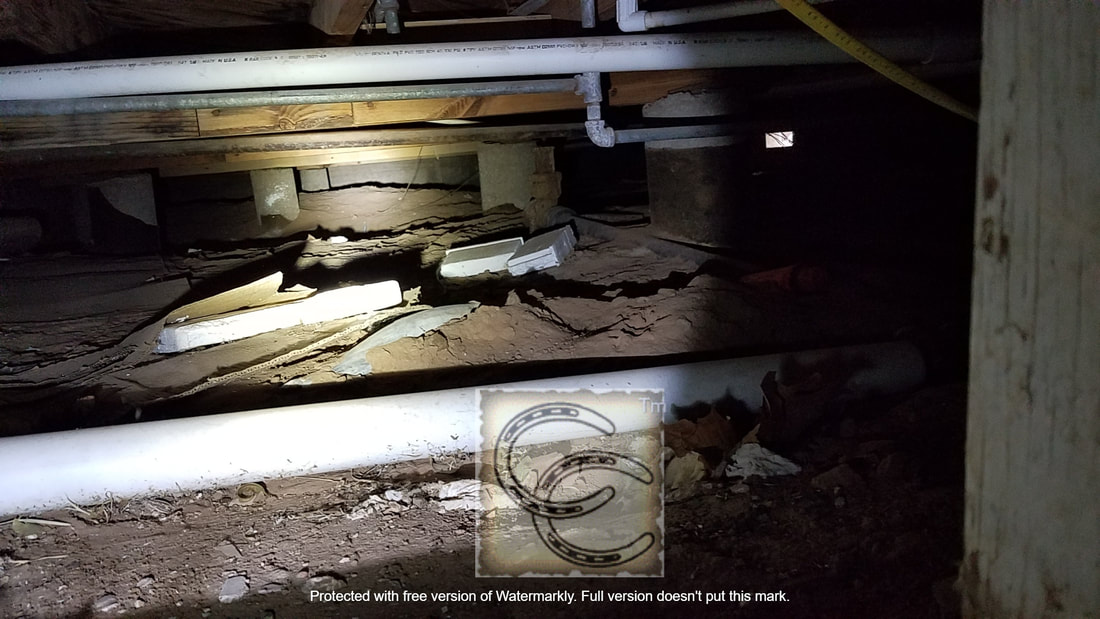
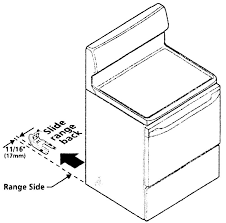
 RSS Feed
RSS Feed